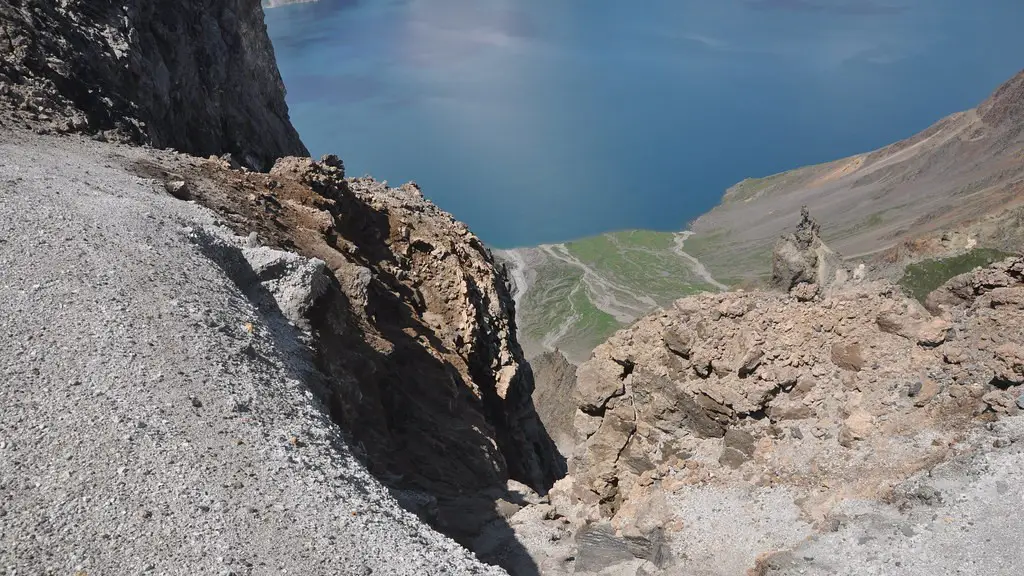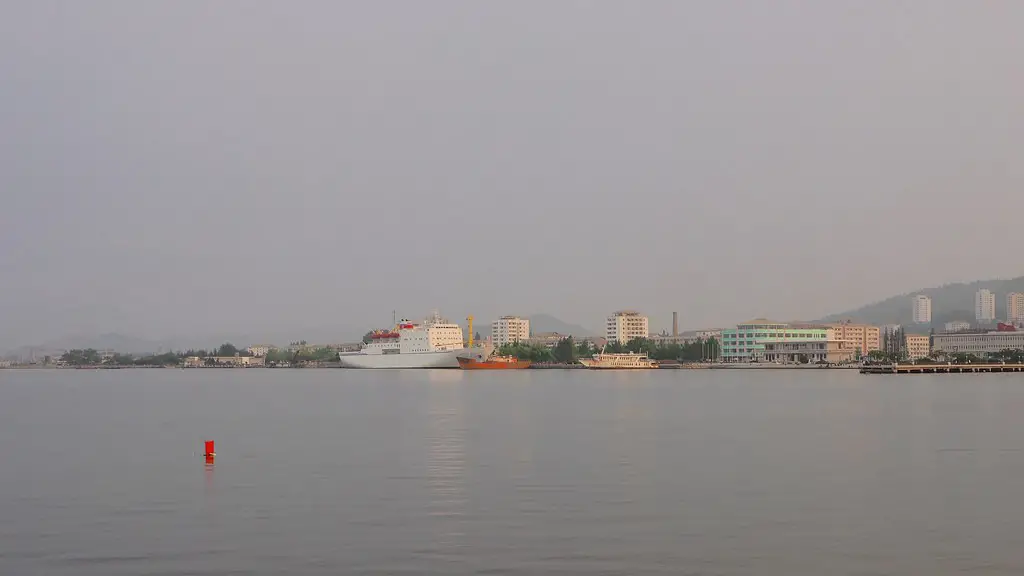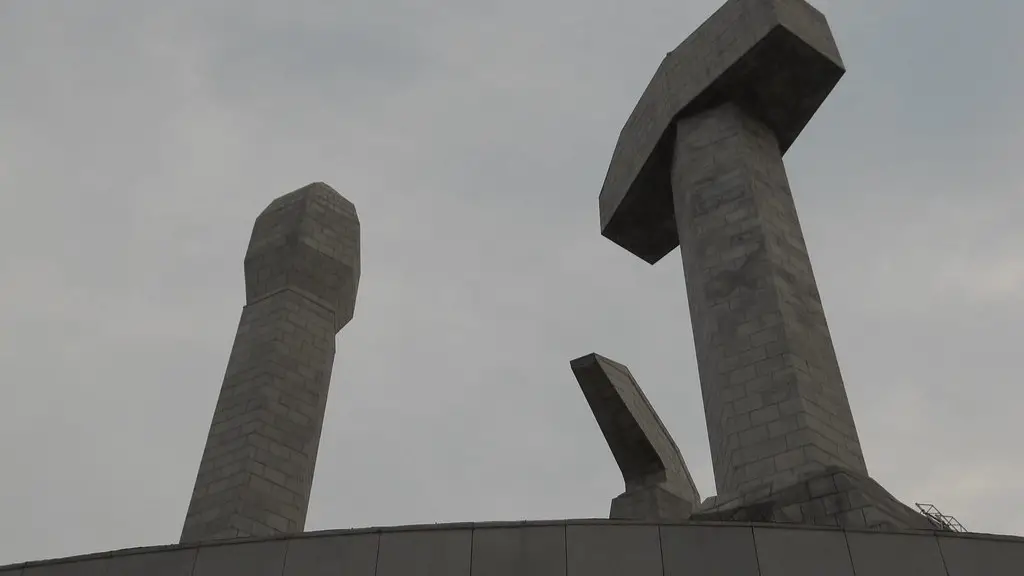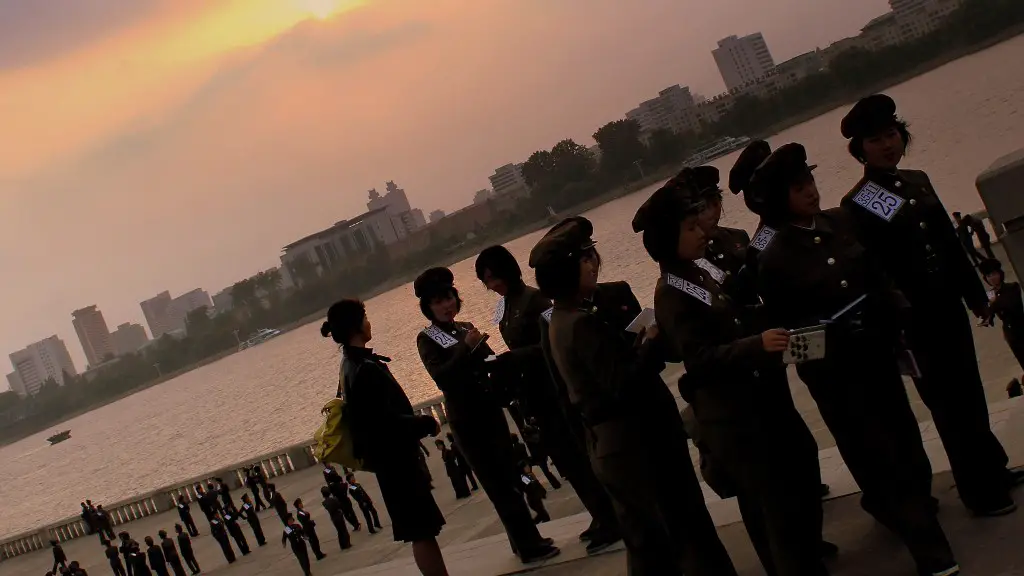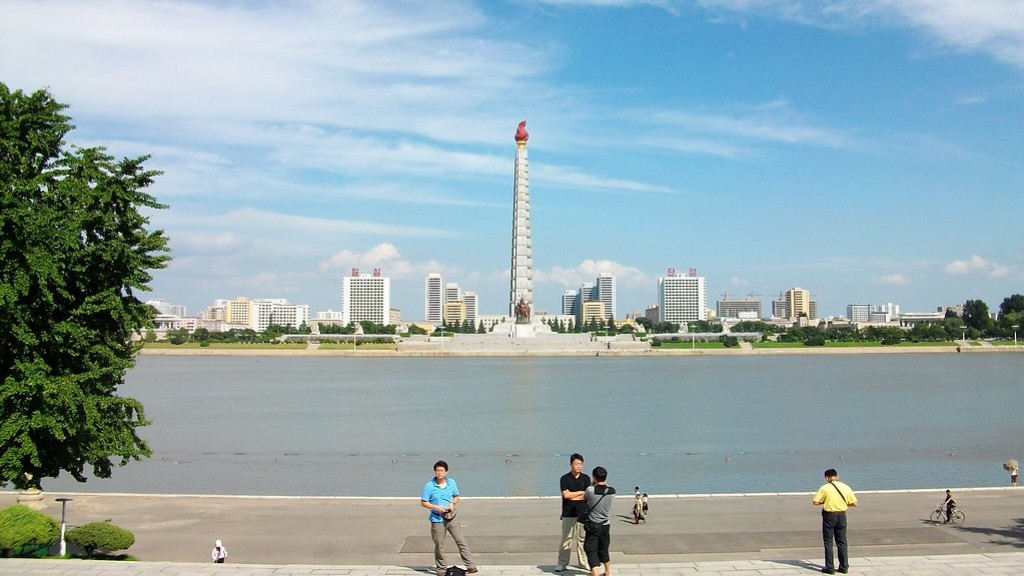North Korea has been a perennial political problem since the end of World War II, when it was divided into two countries along the 38th parallel. One half, the Democratic People’s Republic of Korea (DPRK), fell under Soviet influence, and the other, the Republic of Korea (ROK), was largely influenced by the United States. In the decades since, North Korea has become one of the world’s most isolated countries and its citizens suffer from oppressive human rights abuses and a severely manipulated economy.
The North Korean economy has been managed in a highly centralized way for decades, with economic decisions made by the government and enforced by an oppressive bureaucracy known for its use of harsh punishments. The country has traditionally relied on foreign aid and illicit activities to fund its economy, and its practices have caused significant economic hardship, poverty, and deprivation for its citizens. North Korea’s human rights record is also extremely poor, with reports of executions, labor camps, and other abuses, including targeted violence against family members of political prisoners. The country also engages in activities such as weapons testing and provocative acts aimed at South Korea and other countries, prompting international sanctions and further isolation from the rest of the world.
Although there have been attempts to improve the situation in North Korea, including negotiations and attempts at economic reform, little progress has been made, and the country remains one of the poorest in the world. North Korea’s government is not accountable to its citizens, and its policies have caused significant suffering and deprivation. The country continues to engage in provocative activities that have caused international outcry, and its human rights record remains one of the worst in the world. In short, North Korea is a pariah nation that isolates its citizens and continues to offend international standards and norms.
Experts and researchers on North Korea emphasize that the underlying cause of North Korea’s human rights abuses and economic deprivation is its government’s stringent control over its citizens and economy. The government does not allow for economic freedom, and relies on an authoritarian control of resources. This lack of economic freedom has led to extreme poverty and deprivation, which are then enforced by harsh punishment, surveillance, and violence. As long as North Korea’s government continues to exercise such strict control over resources, economic development and security improvements remain unlikely.
Furthermore, North Korea’s development has been stifled by its weak international standing. The country is internationally isolated, and as such it has been denied access to loans and foreign investments, which would otherwise be beneficial for economic growth. North Korea is also subject to international trade restrictions and sanctions, which have weakened the country’s prospects for development. As a result, the country has been unable to modernize the economy, making it increasingly difficult for North Koreans to find work or better their living standards. This lack of development has had a direct effect on the country’s performance in other areas, such as its military or human rights situation.
Finally, North Korea’s government has actively worked to suppress any attempt at reform or progress. The government actively monitors and represses dissent and it restricts access to information. This has created an atmosphere of fear that has stifled social and economic development, as well as any criticism of the government’s policies. It is clear that without changes in the government’s policies, the security and development of North Korea will remain stagnant, and its citizens will continue to suffer.
Government Repression and Conformity
The government of North Korea has long maintained a culture of fear, using suppression, punishments and surveillance to enforce conformity and prevent any dissent. This has been especially true in recent years, as the regime has increased its efforts to punish those deemed to be dissidents or political opponents. North Koreans have become accustomed to a life of repression and fear, where individual freedom and expression are stifled.
The government of North Korea also closely monitors its citizens, operating a rigorous system of identity cards and surveillance. North Koreans are required to carry identity cards at all times and are subject to random checks and searches by the state security apparatus. It is a totalitarian system designed to ensure complete government control over its citizens and to prevent any sort of internal dissent or opposition.
The pervasive climate of fear and repression also means that North Koreans are not allowed to have access to unrestricted information. International media is censored, and citizens are not given an accurate picture of the outside world. The government also tightly controls access to outside media, preventing many North Koreans from accessing news, information and entertainment from other countries.
The government also implements a strict educational system which is geared towards indoctrination rather than learning. Students are taught to uphold and support the regime’s rule, and to remain loyal to its ideology. The educational system does not teach critical thinking skills and does not encourage creativity, which has further exacerbated the climate of stagnation and conformity among North Koreans.
Finally, North Korea’s government actively discriminates against certain groups and individuals. The government has long targeted those it deems to be dissidents or potential political opponents, and has used targeted violence to punish their family members. In addition, the regime has targeted ethnic and religious minorities, as well as political refugees, who have been subjected to arbitrary arrests, imprisonment and other forms of persecution.
Censorship and Propaganda
The government of North Korea also uses censorship and propaganda to control its citizens and to suppress any opposition or criticism. North Koreans are not allowed to access unrestricted information, and the government closely monitors media outlets and the internet. International news and information is highly censored, with those found in possession of banned materials and those caught accessing foreign content liable to harsh punishments.
The government also deploys propagandistic messaging to mould the opinions and world-views of the citizens. It presents an idealised version of reality, which emphasizes the virtues of obedience and loyalty to the regime. North Koreans are heavily exposed to state-approved messages, and those who refuse to comply are liable to harsh punishments.
The government also uses public gatherings and events to further its propaganda. These events are mainly aimed at propagating the regime’s ideologies and images of the state, and give citizens a sense of belonging and purpose. In addition, the government also uses rallies and public gatherings to show its support to officials and admonish those who do not adhere to state-sanctioned goals.
Finally, the government of North Korea has also been accused of using ‘psychological warfare’ tactics against its citizens. This is done by manipulating public information and disseminating information that instils fear and uncertainty among the population. This creates an atmosphere of anxiety, which serves to keep citizens in line and to discourage any attempts at dissent or rebellion.
Human Rights Abuses
North Korea’s government has been consistently accused of violating the human rights of its citizens. The country’s authoritarian regime has been documented to use arbitrary detention and torture, and to carry out executions of those opposed to its rule. North Korean citizens also suffer from restrictions on their mobility and access to information, and they are subject to intrusive surveillance.
North Korea’s prison camps are also notorious for their inhumane conditions and harsh punishments. In these camps, inmates are subject to forced labor, torture, malnutrition, and a range of other abuses. Reports have also indicated that the government uses these camps to eliminate political opposition and to punish those considered disloyal or dangerous to the regime.
The government also restricts freedom of expression and limits access to information. Dissenting voices are punished harshly and are subject to interrogation and torture. Journalists, activists and those attempting to provide information to the outside world are often given lengthy prison sentences. In addition, those expressing any dissatisfaction with the regime risk facing punishments such as imprisonment, torture and death.
North Koreans also suffer from restrictions on their political and civil rights. The government rigorously monitors its citizens and restricts their right to vote. North Koreans are also denied their right to freedom of speech, assembly and association, and they are not allowed to form political parties or to celebrate any form of political dissent.
Economic Hardships
North Korea’s economic situation is dire, with the country suffering from severe poverty, food shortages, and a lack of economic opportunity. The government’s economic policies have largely failed, and the country has been denied access to international aid and investments. North Koreans face extreme hardship, with malnutrition and starvation being common problems. In addition, the country’s health care system is inadequate, with many North Koreans unable to access medical care.
The country is also deeply impoverished, with most of its citizens living on low incomes and having to make do with scarce resources. This poverty can be attributed to the government’s centralized economic system and its heavy reliance on foreign aid. In addition, North Korea has been subject to international trade restrictions and sanctions, which have further weakened the economy.
North Korea is also lagging behind in technological development. The government does not invest much in research and development, and its citizens lack access to the latest technology. It is estimated that the country’s internet penetration rate is among the lowest in the world, and its media outlets are heavily censored and controlled by the government.
Finally, North Korea’s economic stagnation has also affected its foreign relations. The country is largely isolated from the rest of the world, and international investments and support are limited. This has made it difficult for North Korea to develop economically and has further exacerbated the country’s already dire situation.
Conclusion
It is clear that North Korea’s poor record on human rights, repressiveness, and economic stagnation make it one of the most oppressive countries in the world. Its government has implemented draconian policies that restrict its citizens’ freedom and hinder economic progress. North Korea is also isolated from the rest of the world and has been subject to international trade restrictions and sanctions. These policies have caused significant deprivation and suffering among the North Korean people and have further weakened the country’s prospects for improvement.
